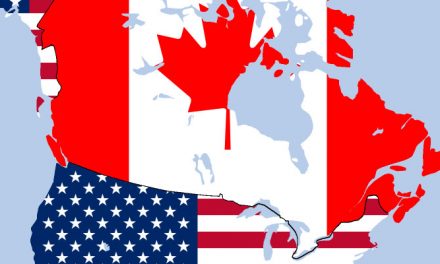Council of Canadians share thoughts on NAFTA
By Rick Arnold of the Trade Group,
Northumberland chapter of the Council of Canadians
NORTHUMBERLAND – Many of us here in Northumberland County have been transfixed by US President Donald Trump’s recent harsh rhetoric towards Canada and in response to Prime Minister Justin Trudeau’s attempt to placate the White House.
Free-trade proponents would have us believe that NAFTA (North American Free Trade Agreement) renegotiations is like a high-stakes game of poker to see who can gain advantage and out-manoeuvre the other. But let’s not be fooled for a moment that it’s a battle between equals. The renegotiation of NAFTA is not going to be a win-win proposition for either junior partner, Canada or Mexico.
Nor should w in Northumberland believe that these national-level trade negotiations will not affect us.
But before taking a look at what a renegotiated NAFTA might have in store for us down the road, we need to be aware of the impact tat two other recent free-trade deals will shortly have on milk and cheese producers in our area, as well as on our budding local-food movement. In case you haven’t heard of these two deals before, they are CETA (Canada-European Union: Comprehensive Economic and Trade Agreement) and CFTA (Canadian Free Trade Agreement).
CETA is not a done deal, as all European Union nations have yet to ratify it. But effectively, Canada considers it done, and import quotas will soon allow for an increased flow of (for example) cheeses from mega-European factories.
Empire Cheese and Butter, located near Campbellford, is a small co-op that relies for its cheese production on milk provided by eight local dairy farms. Empire products are high-quality and are currently to be found on several shelves in food-related businesses in towns like Cobourg and Port Hope. However, under CETA, Empire’s products are in danger of being supplanted by a flood of cheaper European cheeses. Multiply Northumberland’s example by the 47 small and medium-sized cheese plants to be found in various parts of Ontario, and one can see that hundreds (if not thousands) of rural jobs are on the line.
CFTA was concluded in early April by Federal, provincial and territorial governments. Business groups argued (successfully) that internal trade barriers are costly to the Canadian economy (despite such barriers being few in number). However, scant media attention has been devoted to another aspect of this deal, one which Scott Sinclair of the Canadian Centre for Policy Alternatives headlines as, “Local food policies are toast.”
Mr. Sinclair goes on to explain that, “…the new CFTA effectively eliminates the ability of provincial, municipal or broader public-sector institutions such as schools, universities and hospitals to use their procurement to favour local suppliers or to encourage any kind of local development.”
This policy direction embedded in the CFTA would appear to run counter to Northumberland’s best interests, given that local public bodies should be given a free hand to use their purchasing power to give local food retail and local growers a boost. Were our municipalities consulted prior to this decision?
Washington is about to reopen NAFTA, with acquiescent Canadian and Mexican governments falling into line while trying to save fact by saying that it’s time to “modernize” the 23-year-old deal. In reality, President Trump has thus far shown little interest in addressing any new developments since NAFTA was first implemented, focusing his ire instead on having a little give-and-take — where NAFTA’s two junior partners to the giving, in order to rectify their having taken “unfair” commercial advantage of the US in the past.
Of course, these assertions by Trump rank high on the “baloney meter.” But we all know the old adage: thems that got the power make the rules.
Sadly, government leaders and their attendant free-trade promoters play down the fact that trade deals like NAFTA have contributed significantly to inequality, unemployment, migration, food dependency and pollution in all three nations.
On April 18, President Trump announced that he was coming after Canada’s dairy policies, alleging that they were hurting 75 Wisconsin farmers. Had Trump dug a little deeper, he would have had to face the fact that over-production of mik in the US was pushing dairy prices down and driving those small US farmers into bankruptcy. In fact, the president of the National Farmers’ Union Jan Slomp recently explained in a tweet to Trump that, if the US were to adopt their own version of a supply-management system like Canada’s, “…it could begin to restore prosperity to rural America.”
Unfortunately, the Trump administration does not appear to let facts stand in their way and, for this reason, both dairy farmers and milk-product consumers in Northumberland need to beware of the upcoming NAFTA renegotiations.
Small and medium-sized dairy farmers both here and across Canada should reconsider whether the traditional strategy of lobbying Ottawa will be sufficient to turn back the “give” tide when the US NAFTA negotiators apply the screws to their Canadian counterparts.
And those of us who enjoy cow’s milk also need to be aware that opening up the Canadian market to US and other international dairy-production platforms will surely mean that bovine growth hormones and antibiotics will find their way into our currently unparalleled source of milk.





